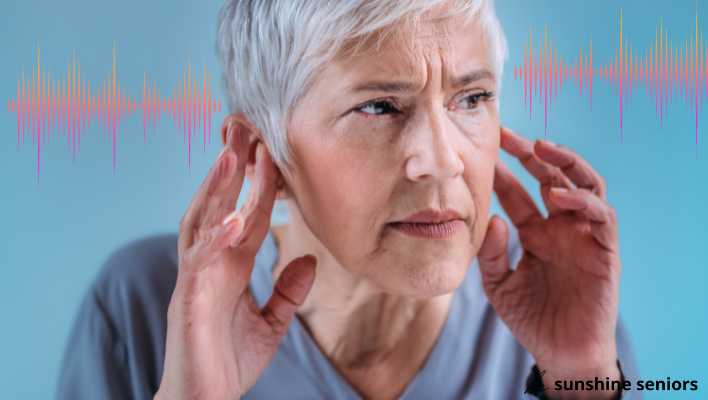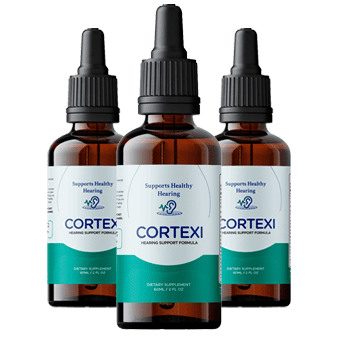Do you ever hear a ringing, buzzing, or hissing sound in your ears that no one else can hear? If so, you may be experiencing tinnitus. Tinnitus is a common condition that affects millions of people worldwide. It is not a disease, but a symptom of an underlying condition such as hearing loss, ear injury, or circulatory system disorders.
Tinnitus can be a mild annoyance or a severe disruption to your daily life. The sound can be constant or intermittent, and it may be in one or both ears. Some people describe it as a high-pitched whine, while others hear a low rumble. Tinnitus can also be accompanied by dizziness, headaches, or difficulty sleeping. Although there is no cure for tinnitus, there are treatments available to help manage the symptoms.

Causes
Tinnitus is a condition where you hear ringing, buzzing, or other sounds in your ears without any external source. There are several causes of tinnitus, including:
Noise-induced tinnitus
If you are exposed to loud noises for a prolonged period, it can damage your inner ear and lead to tinnitus. This can happen if you work in a noisy environment, attend loud concerts or use headphones at high volumes for extended periods.
Age-related tinnitus
As you age, your hearing ability declines, and you become more susceptible to tinnitus. This is because the hair cells in your inner ear that detect sound waves become less sensitive over time.

Earwax blockage
Earwax protects your ear canal from dirt and bacteria. However, if it accumulates in your ear canal, it can cause tinnitus. This is because it can block the sound waves from reaching your inner ear.
Medications that cause tinnitus
Some medications can cause tinnitus as a side effect. These include antibiotics, diuretics, and chemotherapy drugs.
It is essential to identify the cause of your tinnitus to determine the appropriate treatment. If you experience tinnitus, you should consult an audiologist or an ear, nose, and throat specialist.
Symptoms
If you are experiencing tinnitus, you may be noticing a variety of symptoms. Here are some common symptoms you may be experiencing:
Ringing in the ears
One of the most common symptoms of tinnitus is a ringing in the ears. This ringing may be constant or come and go. It may be high-pitched, low-pitched, or have a pulsing quality. Some people describe it as a buzzing, whistling, or hissing sound.
Buzzing or humming in the ears
In addition to ringing, you may also be experiencing a buzzing or humming sound in your ears. This sound may be constant or intermittent, and may be more noticeable in quiet environments.

Difficulty hearing
Tinnitus can also cause difficulty hearing. You may find it harder to hear conversations, especially in noisy environments. You may also notice that you are turning up the volume on your TV or radio more than usual.
Ear pain or discomfort
In some cases, tinnitus can also cause ear pain or discomfort. This pain may be sharp or dull, and may be accompanied by a feeling of pressure in the ear.
If you are experiencing any of these symptoms, it is important to see a healthcare professional for an evaluation. They can help determine the cause of your tinnitus and recommend appropriate treatment options.
100% Natural Formula Expressly Designed to Support Healthy Hearing and Mental Sharpness Well Into Your Golden Years.
Cortexi's incredible formula brings together high quality raw ingredients sourced from different parts of the world that work in synergy for maximum performance. It is the only natural supplement that supports healthy hearing with proven results.
The Link Between Tinnitus, Hearing Loss, and Dementia: What You Need to Know
If you’re experiencing tinnitus, you may be wondering whether it’s related to hearing loss or dementia. The answer is yes. Tinnitus, hearing loss, and dementia are all linked in various ways.
When you have tinnitus, you may experience a ringing, buzzing, or hissing sound in your ears. This sound is not coming from an external source, but rather is generated by your brain. Tinnitus is often associated with hearing loss, which means that you may have difficulty hearing sounds at certain frequencies or volumes.
Studies have shown that hearing loss is a risk factor for dementia. When you have hearing loss, your brain has to work harder to process sound, which can lead to cognitive decline. In addition, hearing loss can lead to social isolation and depression, which are also risk factors for dementia.
Tinnitus can also contribute to cognitive decline. The constant ringing or buzzing in your ears can be distracting and make it difficult to concentrate. This can lead to problems with memory and other cognitive functions.
If you’re experiencing tinnitus, it’s important to take steps to protect your hearing. This may include wearing earplugs in loud environments, avoiding exposure to loud noises, and getting regular hearing tests. If you have hearing loss, it’s important to use hearing aids or other assistive devices to improve your hearing.
In addition, there are steps you can take to reduce your risk of dementia. These include staying physically active, eating a healthy diet, getting enough sleep, and staying socially engaged. If you’re concerned about your cognitive health, talk to your doctor about your options.
The Mental Health Impact of Tinnitus and Hearing Loss
Living with tinnitus and hearing loss can be challenging, and it can have a significant impact on your mental health. Here are a few ways that tinnitus and hearing loss can affect your mental well-being:
- Anxiety: Tinnitus and hearing loss can cause anxiety, which can lead to a range of physical and emotional symptoms, including increased heart rate, sweating, and feelings of panic. Anxiety can also make it difficult to sleep, concentrate, and enjoy everyday activities.
- Depression: Tinnitus and hearing loss can cause depression, which can lead to feelings of sadness, hopelessness, and worthlessness. Depression can also cause physical symptoms, such as fatigue, changes in appetite, and difficulty sleeping.
- Social Isolation: Tinnitus and hearing loss can make it difficult to communicate with others, which can lead to social isolation. This can cause feelings of loneliness and can make it difficult to participate in social activities.
- Stress: Tinnitus and hearing loss can cause stress, which can lead to a range of physical and emotional symptoms, including headaches, muscle tension, and irritability.
If you are experiencing any of these symptoms, it is important to seek help from a mental health professional. They can help you develop coping strategies and provide support as you navigate the challenges of living with tinnitus and hearing loss.
100% Natural Formula Expressly Designed to Support Healthy Hearing and Mental Sharpness Well Into Your Golden Years.
Cortexi's incredible formula brings together high quality raw ingredients sourced from different parts of the world that work in synergy for maximum performance. It is the only natural supplement that supports healthy hearing with proven results.
Diagnosis
If you are experiencing symptoms of tinnitus, it is important to see a healthcare professional for a proper diagnosis. Your doctor will perform a physical exam and may order hearing and imaging tests to determine the cause of your tinnitus.
Physical Exam
During a physical exam, your doctor will examine your ears, head, neck, and jaw to look for any physical abnormalities that may be causing your tinnitus. They may also ask you questions about your medical history and any medications you are taking.
Hearing Tests
Hearing tests, such as audiometry and otoacoustic emissions testing, can help determine if there is any hearing loss associated with your tinnitus. Your doctor may also perform a pitch match test to determine the frequency of the sound you are hearing.
Imaging Tests
Imaging tests, such as magnetic resonance imaging (MRI) or computed tomography (CT) scans, may be ordered to rule out any underlying conditions that may be causing your tinnitus, such as a tumor or blood vessel abnormalities.
It is important to note that there is no single test to diagnose tinnitus, and it may take time to determine the underlying cause of your symptoms. Your doctor may refer you to an audiologist or an ear, nose, and throat (ENT) specialist for further testing and treatment.
Treatment
If you are suffering from tinnitus, there are several treatment options that can help you manage your symptoms. These treatments can help reduce the intensity and frequency of the ringing or buzzing in your ears, and improve your overall quality of life. Here are some common treatment options for tinnitus:
Medications
Certain medications can help reduce the symptoms of tinnitus. These medications include:
- Antidepressants: These medications can help reduce the anxiety and depression that often accompany tinnitus.
- Anticonvulsants: These medications can help reduce the intensity and frequency of tinnitus by stabilizing the electrical activity in the brain.
- Benzodiazepines: These medications can help reduce the anxiety and stress associated with tinnitus.

Sound therapy
Sound therapy involves using external sounds to help mask or distract from the ringing or buzzing in your ears. Some common sound therapy options include:
- White noise machines: These machines produce a steady, low-level sound that can help mask the sound of tinnitus.
- Hearing aids: Hearing aids can help improve your overall hearing and reduce the impact of tinnitus.
- Masking devices: These devices are worn in the ear and produce a low-level sound that can help mask the sound of tinnitus.

Counseling and support
Counseling and support can help you manage the emotional impact of tinnitus. Some common counseling and support options include:
- Cognitive-behavioral therapy: This type of therapy can help you change the way you think about tinnitus and reduce the anxiety and stress associated with it.
- Support groups: Joining a support group can help you connect with others who are going through similar experiences and provide you with emotional support.
Alternative medicine
Alternative medicine options for tinnitus include:
- Acupuncture: Some people find that acupuncture can help reduce the symptoms of tinnitus.
- Herbal supplements: Some herbal supplements, such as ginkgo biloba, may help reduce the symptoms of tinnitus.
It’s important to talk to your doctor before trying any new treatments for tinnitus. Your doctor can help you determine which treatment options are right for you and monitor your progress.

Prevention
If you want to prevent tinnitus, there are several steps you can take to reduce your risk of developing this condition. Here are a few things you can do:
Protecting your ears from loud noises
Exposure to loud noises can cause tinnitus, so it’s important to protect your ears from noise-induced damage. Here are some tips:
- Wear earplugs or earmuffs when you’re exposed to loud noises, such as concerts, sporting events, or construction sites.
- Keep the volume down when listening to music or watching TV.
- Take breaks from loud noises, and give your ears time to rest.
Managing stress
Stress can make tinnitus worse, so it’s important to find ways to manage stress in your life. Here are some tips:
- Practice relaxation techniques, such as deep breathing, meditation, or yoga.
- Get regular exercise, which can help reduce stress.
- Make time for activities you enjoy, such as reading, gardening, or spending time with friends and family.
Avoiding certain medications
Some medications can cause tinnitus, so it’s important to talk to your doctor about any medications you’re taking. Here are some medications that can cause tinnitus:
- Antibiotics, such as gentamicin or vancomycin
- Cancer medications, such as cisplatin or carboplatin
- Nonsteroidal anti-inflammatory drugs (NSAIDs), such as aspirin or ibuprofen
- Diuretics, such as furosemide or bumetanide
In conclusion, taking steps to protect your ears from loud noises, managing stress, and avoiding certain medications can help reduce your risk of developing tinnitus.
100% Natural Formula Expressly Designed to Support Healthy Hearing and Mental Sharpness Well Into Your Golden Years.
Cortexi's incredible formula brings together high quality raw ingredients sourced from different parts of the world that work in synergy for maximum performance. It is the only natural supplement that supports healthy hearing with proven results.
Frequently Asked Questions
What are common causes of tinnitus?
Tinnitus can be caused by a variety of factors, including exposure to loud noise, ear infections, aging, and certain medications. It can also be a symptom of an underlying medical condition, such as high blood pressure, thyroid problems, or a tumor.
Are there effective treatments for tinnitus?
While there is no cure for tinnitus, there are several treatments that can help manage the symptoms. These include sound therapy, cognitive behavioral therapy, and medication. It is important to consult with a healthcare professional to determine the best course of treatment for your specific case.
How can tinnitus affect daily life?
Tinnitus can have a significant impact on daily life, causing difficulty sleeping, concentrating, and communicating. It can also lead to anxiety, depression, and social isolation. It is important to seek support and treatment to manage the effects of tinnitus on your daily life.
Can tinnitus be prevented?
There are several steps you can take to prevent tinnitus, such as wearing ear protection when exposed to loud noise, avoiding ototoxic medications, and managing underlying medical conditions. However, some cases of tinnitus may not be preventable.
What are some coping strategies for tinnitus?
Coping strategies for tinnitus include relaxation techniques, distraction techniques, and sound therapy. It is important to find what works best for you and to seek support from healthcare professionals, support groups, and loved ones.
Is there a cure for tinnitus?
Currently, there is no known cure for tinnitus. However, ongoing research is being conducted to better understand the condition and develop new treatments. It is important to continue seeking support and treatment to manage the symptoms of tinnitus.


